Search
Remove Ads
Advertisement
Summary 
Loading AI-generated summary based on World History Encyclopedia articles ...
Search Results

Article
Legacy of the Ancient Romans
The legacy of the ancient Romans – from both the time of the Roman Republic (509-27 BCE) and the time of the Roman Empire (27 BCE - 476 CE) – exerted a significant influence on succeeding cultures and is still felt around the world in the...

Definition
Roman Mythology
The ancient Romans had a rich mythology and, while much of it was derived from their neighbors and predecessors, the Greeks, it still defined the rich history of the Roman people as they eventually grew into an empire. Roman writers such...

Definition
Seven Lucky Gods
In Japanese folklore the Shichifukujin are the Seven Lucky Gods who may also be known as the Seven Gods of Happiness or the Seven Gods of Good Fortune. The seven gods are in fact of diverse origin as some are originally from Buddhism, some...
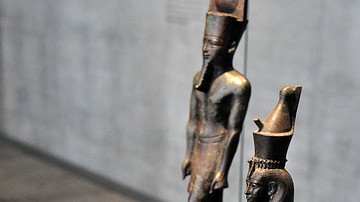
Article
Egyptian Gods - The Complete List
The gods and goddesses of Ancient Egypt were an integral part of the people's everyday lives for over 3,000 years. There were over 2,000 deities in the Egyptian pantheon, many whose names are well known - Isis, Osiris, Horus, Amun, Ra, Hathor...

Video
The Greeks and Romans - Pantheons Part 3: Crash Course World Mythology #9
This week, we continue our look at various Pantheons, and Mike digs deep into the gods of the ancient Greeks. We're talking Zeus, Hera, Poseidon, Hades, Artemis, Hephaestos, Ares, and Apollo. We're also talking Jupiter, Juno, Neptune, Pluto...
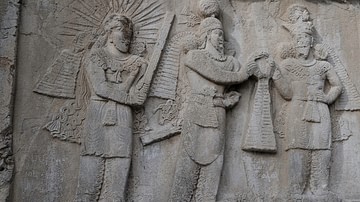
Article
Twelve Gods of Persian Mythology
Ancient Persian Mythology is the term now referencing ancient Iranian religion prior to the rise of Zoroastrianism between c. 1500-1000 BCE. This was a polytheistic faith with a pantheon led by the supreme god Ahura Mazda (“Lord of Wisdom”...
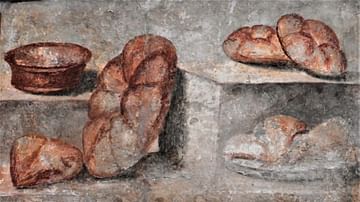
Interview
Dinner with the Romans: An Interview with Farrell Monaco
The ancient Romans left behind a wealth of remains which help archaeologists and historians to understand what daily life was like in the Roman Empire. From ancient frescos of rich table spreads, to broken wine vessels, carbonized loaves...
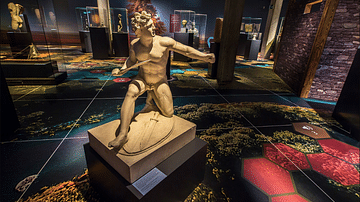
Interview
Interview: Ave Caesar! Romans, Gauls and Germanic tribes on the Banks of the Rhine
In ancient times, the Rhine was a major communications artery stretching right across Europe, allowing trade, contacts, and cultural exchange between different regions. Then as now, the river was of immense importance strategically for controlling...

Definition
Greek Mythology
Greek mythology was used as a means to explain the environment in which humankind lived, the natural phenomena they witnessed and the passing of time through the days, months, and seasons. Greek myths were also intricately connected to religion...
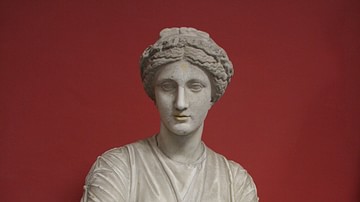
Article
Hesiod on the Birth of the Gods
The Greek poet Hesiod (c. 700 BCE) is most famous for his works Theogony and Works and Days. In this passage from Theogony, Hesiod relates the birth of the gods from cosmic Chaos and follows the lineage through the great Zeus, King of the...